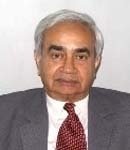India, Sri Lanka and the IPKF Debacle: Remembering 29 July 1987
02 Aug, 2013 · 4064
P R Chari deconstructs India’s higher direction of the IPKF effort
South Block is littered with official histories of India’s conflicts since Independence. Prepared with great exertion and expense, they have not seen the light of the day. At least officially. Amazingly, the official history of the first India-Pakistan War (1947-48) was released, some copies distributed, and it was then withdrawn because it offended certain sensitivities. But, no official history has yet been attempted of the IPKF experience in Sri Lanka, despite its involvement of over 80, 000 troops and the loss of some 1200 lives.
Why? What explains this reticence despite the operation’s claimed success? The simple and clear answer is that the operation was a failure if its objectives are reviewed. So, what were these objectives? First, maintaining the territorial integrity of Sri Lanka, imperative for Indian security because of its pivotal position astride the sea routes from the Gulf region to Southeast and East Asia. Second, a cross-border Tamil ethnicity issue arose due to the familial linkages between the Tamils in Tamil Nadu and Jaffna, and the plantation Tamils in eastern Sri Lanka. Hence, mitigation of the harassment of Tamils by Colombo was important for Tamil Nadu and the Union Government in India by bridging the growing chasm between the Tamil and Sinhala populations. It is clear now that a military-political dictatorship exists in Colombo under the Rajapakshe brothers, and the Tamils have been brought into a state of sullen submission with little freedom or autonomy.
From a military perspective also the IPKF operation were a failure because it failed to separate the LTTE from the Sinhala forces, much less disarm them. In fact, the IPKF’s efforts to establish Tamil governments in northern (Jaffna) and eastern (Trincomalee) Sri Lanka failed spectacularly—they fell within a few days of the IPKF’s withdrawal in early 1990. Besides, the IPKF suffered major confusions in discerning its role in Sri Lanka, with that role changing radically from peace-keeping to peace-enforcing. Thereafter, an armed force designed to maintain the peace and disarm the LTTE was called upon to maintain law and order, suppress the LTTE, and collaborate with the Sinhala forces against the Tamils.
The implications of this radical change in the IPKF’s basic charter can well be imagine with peace-keepers turning into an expeditionary force. Little wonder the IPKF got no cooperation from the local population; in fact, they turned hostile and became the eyes and ears of the LTTE. Compounding its constraints was the fact that the IPKF forces were not equipped or trained for a counter-militancy operation in another country. They lacked the arms, training, orientation, even maps or knowledge of the local language, customs and cultural norms. No wonder again that the IPKF took heavy casualties in the initial few weeks of their transformed role (August-October 1987) before the situation crystallized.
Moreover, the IPKF began to be seen as a mercenary force in much of South India that was being used by the Union Government to oppress the Tamils. Hence the general attitude in Tamil Nadu was sympathetic to the LTTE and hostile towards the IPKF. Public rallies were held against the IPKF and public collections made to provide support to the LTTE. The psychological effect of these demonstrations on the IPKF soldiers can well be imagined; it further lowered their morale to find that they did not have the support of the local people or the State Government most involved. Fighting the LTTE that was a resourceful adversary on behalf of a Union government in New Delhi that had no clear idea of what it wanted added to the IPKF’s loss of morale.
In a recent article [The Tribune—1 August] Lt. Gen. (retd) Depinder Singh, GOC-Southern Command and Overall Force Commander IPKF in the initial critical months after it was inducted, has highlighted the confusion in India’s higher direction of the IPKF effort. He cites Field Marshal Sam Manekshaw’s foreword to his book, quoting the Bible, "For if the trumpet gives an uncertain sound, who shall prepare himself to the battle." The trumpet sounded differently at that juncture in New Delhi and Madras, but also sounded different notes at different times —festive in the beginning and a war cry in the end.
Apropos, there was no great expenditure of thought in New Delhi before the IPKF was inducted. If truth be told, President Jayewardene had prevailed on Rajiv Gandhi to send the IPKF to allow Sinhala forces deployed against the LTTE in Jaffna to withdraw and fight the Janata Vimukti Peramuna insurgency in southern Sri Lanka. This was agreed to by Rajiv Gandhi without taking into account the likelihood that the IPKF might come into confrontation with the LTTE, appreciating its ambitions to head a new Tamil state—Eelam—in Sri Lanka. Indeed, no institutional processes of decision-making were operating, and the choices made were based on purely personal predilections.
The rest, as they say, is history.


